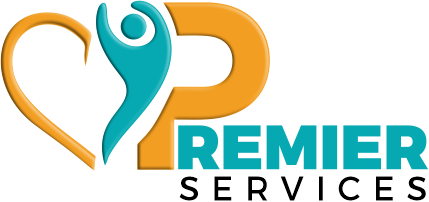
The simplest and cheapest form of life insurance is term insurance. It covers the policy for a particular time, known as the term; for example, it can be from 10 up to 20 or even 30 years. In case of the demise of the policyholder during this term, the beneficiary will be entitled to a benefit upon death. This type of insurance mostly appeals to mortal beings who want to care for their family yet do not wish to pay high insurance premiums.
The yearly premium is very low in term life insurance when compared with the whole life insurance. It proves to be an affordable means for the financial protection of an individual or a family who cannot afford to pay much regularly.
This type of insurance is further simplified; all you need to do is specify the period in years that you wish to be covered under your term, be it 10, 20, or 30. Your beneficiaries will then be entitled to the sum you contracted for upon your demise during this period. One of the beauties of this policy is that it’s easy to understand and simple to use.
For it, you can decide to take a small coverage amount or a larger policy depending on your preferences. This flexibility will guarantee survival for your loved ones whenever you are gone.
It is meant to cover limited periods and specific purposes such as mortgage repayment, expenses for children’s college tuition, or replacing missing incomes. Once these conditions are satisfied, coverage is discontinued, thus saving your pocket.
Almost all term insurances come with an option that allows converting term life insurance to permanent life insurance without any medical examination; this is valid for cases if your health changes in the future and you want a permanent long-term care option.
Even though term life insurance policies do not build up cash values as the whole life insurance does this can turn out to be good. There is no investment part so premiums can still be slightly lower letting you set aside more or use it otherwise.
In terms of life insurance, there are no complications regarding the matter of comparison. It helps you get quotes from different providers within a short period, and hence you can be able to find the perfect coverage you need at a particular cost.
However, term life insurance is not without its drawbacks and the same needs to be discussed also. Here are some of the main cons:
Term life insurance is not similar to that of an investment-type insurance as it will not create any cash values like whole life insurance. This means that one cannot borrow against it or use it for investment purposes; hence, it the less flexible as years go by.
The major drawback of term life insurance is that it only lasts for a limited number of years-say, a coverage period of 10, 20, or 30 years. If you find that you require the coverage after this time, it is possible that premiums will increase significantly or it may not even be available again to you.
Many insurance companies set higher premiums each time you renew your term life policy after its expiration due to your age. This can be costlier as you grow old or when you have other health complications in your body.
Once you set your term length, you are set for that term. If your needs change such as hoping to make coverage more extensive, you may need to buy a new policy that may require medical tests or may cost more.
Since term life insurance does not create cash value, it does not provide for estate planning as does permanent life insurance. A term policy will not be appropriate if you’re interested in wealth transfer, specifically over the long term in terms of taxation.
The fixed-paid benefit of level-term insurance is known at the time of policy issue and remains consistent for the entire tenure of insurance. This means your limit of indemnity and your monthly or annual premium will remain the way they are throughout the policy period. That makes it an excellent option for anyone who seeks set costs and protection throughout their plans. Compared to standard policies where there may be many changes in the premium or payout amount, you can manage your budgets better with it. Ideal for those who want the stability of knowing how much of their premium they are willing to pay to get the coverage that they require for certain years, say 10, 20, or 30 years.
This type of insurance policy is designed to have a face amount that diminishes with time which makes it also referred to as a decreasing term insurance. Normally, this type of insurance is purchased to protect such obligations as mortgages or loans, which are paid off regularly. The premium is constant with this policy, but the coverage is less than that provided by an Endowment or a level-term insurance policy on an annual basis, therefore, it has lower premiums. Ideal for anyone who wants insurance to provide coverage for a certain reducing obligation like a home loan, which comes with a declining payout.
Growing term life insurance pays a benefit that increases year after year to cater to inflation and ever rising cost of living. This way, in this policy, both the coverage amount and the premium rise from time to time so that your family gets more protection financially as time goes by. This type of insurance is appropriate where the particular insurance requirements are likely to expand, perhaps with cost increases as a consequence of inflation or changes in the cost of essential family necessities. Best for: Various groups of people who anticipate high levels of expenditure in the future, from young families, and elderly people with long-term dependents.
Convertible term life insurance provides an opportunity to change the chosen term policy into a permanent one without redoing a medical examination. This option remains admirable because it allows the policyholder to switch to a policy type offering lifetime coverage even when he or she has transformed significantly. The option to convert is handy for people who have a term policy but realize at some point they want permanent insurance. Best for: Individuals who may have a desire to lock themselves for lifetime coverage in the future but would wish to pay for a cheaper term policy in the early future.
Yearly renewable term life insurance pays benefits annually and may be continued on an annual basis. The premiums begin with small amounts, although in most cases, the rates rise with the person’s age. Such a policy is issued to individuals who require temporary insurance or those who anticipate that they will require a different type of policy later. It is cheap when one signs up with it, but the cost can be quite high when one renews it.Best for Segment A involves persons who require insurance protection for only a limited period or those, who intend to make changes in the insurance portfolio every year.
Term life insurance is a good product for those people who require cheap and temporary insurance. It’s especially advantageous if you have young children, dependents, or a large amount of debt such as a mortgage it means that your family will be financially secure in case of your death. It is also suitable for those who desire to have a life insurance policy, perhaps because of financial constraints in their lives, as the premiums charged are cheaper than those associated with permanent policies. Temporary coverage is easy and inexpensive when you select term life insurance for the time that your kids are in school or until your debts are paid. It is simple, free from choice diversification, and that is why it is suitable for those people who have chosen it as a temporary reliable tool.
There are three major factors to consider when picking a term life insurance policy in Florida: coverage needs, term options, and premiums. First, determine how much coverage you need for living expenses, outstanding bills, and anything else your family might need. This will give you a good idea of how much coverage you need. Next, choose the length of your term-whether it is 30 years, 20 years, or 10 based on what works best for you. Remember, the briefer the term, the higher your premiums will be for the same coverage.
It will involve the company checking on its reliability and ability to train its officials in helpful advice. Search for options like the possibility of conversion to permanent insurance or an increase in the death benefit to customers who become terminally ill, since these make a policy more flexible. Last, your health condition defines your premium and, therefore, fill in your application form sincerely in order to get the best rate possible.
Term life insurance in Florida provides specific coverage on a time basis such as a term of 10 years, 20 years, or 30 years. During that time, your family gets financial support to assist with expenses in case something happens to you.
To find out the amount of coverage you require in Florida, think about your family’s needs regarding living expenses, unpaid bills, and other requirements. This would make it easier to know the appropriate amount of coverage.
Depending on your situation, you can choose from 10, 20, or even 30 years of coverage in Florida.
Premiums vary in Florida. The shorter your term higher the premium for the same coverage. The price also depends on your health and age.
Some term insurance policies in Florida allow a change of benefits to convert to permanent insurance or increase death benefits if serious illness occurs. So always check your policy for such options.

We are an agency that will provide affordable Premier Service LLC policies by taking care of the needs of individual customers across the United States.